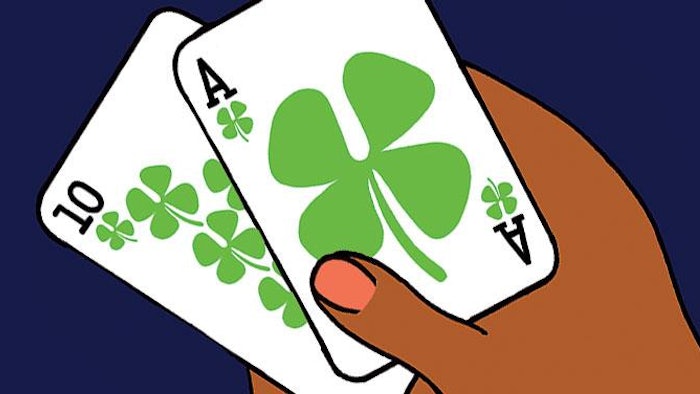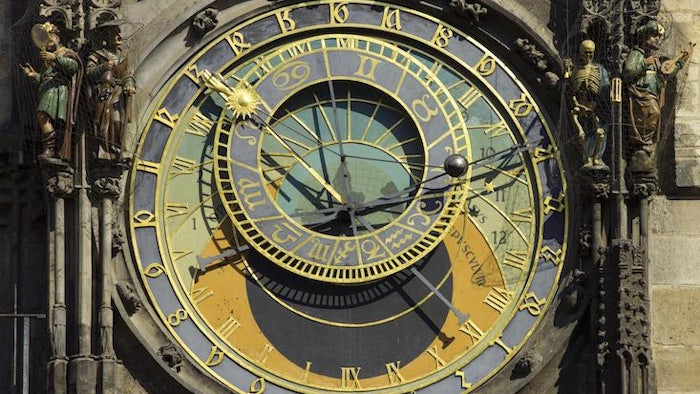Issue_44
34 articles-
The Key to Good Luck Is an Open Mind
Really lucky people may have a specific set of skills that bring chance opportunities their way. -
Inside the Goth Chicken: Black Bones, Black Meat, and a Black Heart
In the historical novel The Black Tulip, written by Alexandre Dumas, an honest and decent Dutch tulip fancier is nearly brought to ruin by his quest to breed a purely black flower. More precisely, his misadventure is due to the dastardly schemes of his neighbor, who, frantic with spite and jealousy over the plants, frames […] -
Why Theories of Everything Are Ill-Conceived
The police don’t often sympathize with speeding drivers, but if you’re a quantum gravity physicist who was distracted by a grand epiphany while driving at night, you might have a better chance. “The Italian policeman asked me politely if I was crazy to drive at that speed,” writes the Italian physicist Carlo Rovelli in his […] -
Why We Hear Voices in Random Noise
You may have once seen a giant face in the clouds. Perhaps it took you aback, amused you, or maybe it prompted an “uncanny valley” kind of sensation—realness, but with a lingering unease. Nautilus Members enjoy an ad-free experience. Log in or Join now . In any case, it’s not a modern phenomenon. It’s thought […] -
Why Pascal’s Wager Is Eminently Modern
Fingers Crossed: Pascal reasoned that life is a sort of “game,” and that our faith in God, or lack-there-of, is our wager as to the ultimate nature of reality.Photograph by Albert / Flickr Nautilus Members enjoy an ad-free experience. Log in or Join now . On the evening of November 23rd, 1654, the brilliant polymath […]
-

Even Scientists Act Superstitious at Sea
To wish someone “good luck” is taboo aboard a ship. So are transporting bananas and whistling. But sighting a pod of dolphins can invite good fortune, I discovered last November, as I sailed 3,000 miles from Los Angeles to Honolulu. Wearing a gold hoop earring, I learned from one of my crewmates, who had one […]
-

The Multiple Multiverses May Be One and the Same
If multiverses seem weird, it’s because we need to revamp our notions of time and space.
-

Why Renaissance Astronomer Tycho Brahe Is Still a Star
A new theory on the scientist’s head-scratching demise.
-

How Considering False Histories Changes Our Moral Judgments
Moral luck isn’t just a philosopher’s toy concept. It’s reflected in our legal system. Suppose that you and your roommate, Riley, get equally drunk and both drive home separately on similar routes. Let’s say both of you are equally skilled drivers but also equally impaired, and just by chance, you kill somebody crossing the street […]
-
How to Be Lucky
It pays to imagine your life is on a winning streak. -
Why Birds Love Mobs
When I tell Katie Sieving, an avian wildlife ecologist at the University of Florida, that it’s probably a stretch to call “mobbing” an act of heroism, she laughs. Mobbing, as the term suggests, involves a mob: It’s when a group of animals band together to harass and drive out a common predator—a behavior already well-known […] -
The Secret of Buckminister Fuller’s World-Changing Ideas Was Serendipity
In his 2016 book, You Belong to the Universe, Jonathon Keats sets out to release Buckminister Fuller from “the zany sci-fi designs that made him notorious, and rescue him from the groupies who have impounded him as a cultish prophet.” Nautilus Members enjoy an ad-free experience. Log in or Join now . Keats, a writer […] -
The Cosmos’ Fine-Tuning Does Not Imply a Fine-Tuner
Bad ideas die hard, and then sometimes they come back to life. One such bad idea is the so-called design argument that goes something like this: “Behold the human eye: It is perfectly adapted to seeing the things we need to see, like predators or potential mates. It looks almost like the eye was designed […] -
The Not-So-Fine Tuning of the Universe
There’s more than one way to build a universe suitable for life.


























